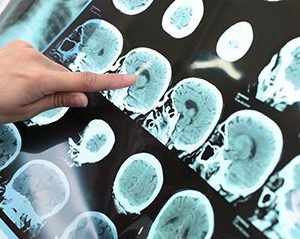- Could Your Grocery Store Meat Be Causing Recurring UTIs?
- Are You Making This Expensive Thermostat Error This Winter?
- Recognizing the Signs of Hypothyroidism
- 10 Strategies to Overcome Insomnia
- Could Artificial Sweeteners Be Aging the Brain Faster?
- Techniques for Soothing Your Nervous System
- Does the Water in Your House Smell Funny? Here’s Why
- Can a Daily Dose of Apple Cider Vinegar Actually Aid Weight Loss?
- 6 Health Beverages That Can Actually Spike Your Blood Sugar
- Treatment Options for Social Anxiety Disorder
Blood Sugar May Be Key to Brain Power After a Stroke

Having higher blood sugar can lead to quicker loss of brain power after a stroke, a new study suggests.
High blood pressure and cholesterol were not associated with a similar mental loss, even in those at higher genetic risk for dementia.
“Having a stroke increases a person’s risk of dementia up to 50-fold, but we lack a comprehensive treatment approach that could reduce this risk, other than preventing a second stroke,” said study co-author Dr. Deborah Levine, a professor of medicine and neurology at the University of Michigan Medical School.
“These findings suggest that higher cumulative blood sugar levels after stroke contribute to faster cognitive decline, and hyperglycemia [excess blood sugar] after stroke, regardless of diabetes status, could be a potential treatment target to protect post-stroke cognition,” Levine said in a Michigan Health news release.
Researchers used data from the STROKE COG study, which pooled data from four long-term U.S. studies. The new study looked at nearly 1,000 people whose measurements of brain function and blood tests were taken for years before and after they had a stroke.
Stroke survivors with high blood sugar had a much quicker loss of general thinking ability. However, high blood sugar did not affect executive function (complex decision-making ability) or memory, according to the study.
The team adjusted the data for differences in factors such as age, income, education, and use of medications to treat high blood pressure, cholesterol and blood sugar. Post-stroke blood sugar measurements were taken an average of two years after their first stroke. About 20% of the study participants were taking diabetes medication before their stroke.
Further research is needed to test whether tight blood sugar control in stroke survivors reduces this post-stroke cognitive decline and dementia, in people with and in those without diagnosed diabetes, Levine said.
Tight blood sugar control in people with diabetes is known to reduce small blood vessel complications in the eyes, kidneys and nerves. It might also reduce small blood vessel disease in the brain, the researchers suggested, though this is unproven.
People who have survived strokes and mini-strokes should work with their health care team to determine the best approach to testing and managing blood sugar for them, according to the researchers. This is especially true if they have pre-diabetes or diabetes.
Very low blood sugar levels in older adults are also a risk for dementia and should be avoided, Levine said.
The study was funded by the U.S. National Institute in Aging and other sources. The results were published online May 17 in JAMA Network Open.
More information
The American Stroke Association has more on life after a stroke.
SOURCE: Michigan Medicine, news release, May 17, 2023
Source: HealthDay
Copyright © 2026 HealthDay. All rights reserved.










